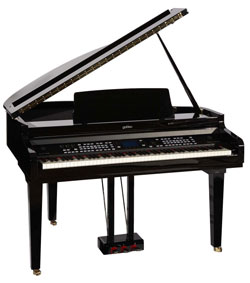
Tips for Shopping for Discounts at a Piano Sale
-
Learn what you can about the seller. If possible, do some research beforehand to find out if this person or group is reliable. Do they often have these sorts of sales? Are there any reports of their trustworthiness? It can also help to chat with and ask questions directly of the seller. Find out if they seem to know what they’re talking about.
-
Do they offer any guarantees? If you’re shopping a discount sale at an established music store, they’re probably still going to back up their products with a warranty. (But make sure to ask!) Otherwise, if the piano sale is at someone’s home, a college campus, or some sort of outdoor venue, it’s an open question. Unfortunately, plenty of fly-by-night types will happily sell you a clunker and then vanish before you even have a chance to get it home.
-
Don’t buy without seeing it in person. Ever. This one is a hard and fast rule. Whether
it’s through eBay, Craigslist, newspaper ads, or anything else, you simply should not ever purchase a discounted piano that you cannot personally inspect and try out before handing over money. The potential to get ripped off is just too high to gamble thousands of dollars on.
-
Beware of the "hard sell." Buying a piano is a lot like buying a car. Some salesmen don’t want you looking under the hood or testing it out beforehand. This should be a huge red flag that there are problems with it that you don’t know about. Don’t be afraid to walk away. Better to wait a few months for that piano of your dreams than be stuck with one which turns into a money pit constantly in need of repairs.
-
Ask about the instrument’s history. Obviously, some people might try to spin a tall tale, but try to find out about this piano specifically. How many previous owners has it had? How has it been used in the past? While it’s perfectly possible to have a well-maintained piano that’s seen a lot of use, in general, the longer a life it’s had, the more likely it is to have hidden problems.
-
If possible, bring an expert. If you aren’t familiar with buying pianos, try to bring someone with you who can help. Local pianists, music teachers, church players, or even piano dealers might be willing to come along to help. Even if you have to pay a little bit for their time and effort, fifty bucks is cheap insurance when you’re looking at a four- or five-figure purchase.
Basically, a piano sale can be a great way to get a deal, but like with any big ticket item, you have to be extremely careful. Don’t get stuck with a lemon because you got entranced by a deal that was too good to be true. They usually are.







 it’s through eBay,
it’s through eBay,